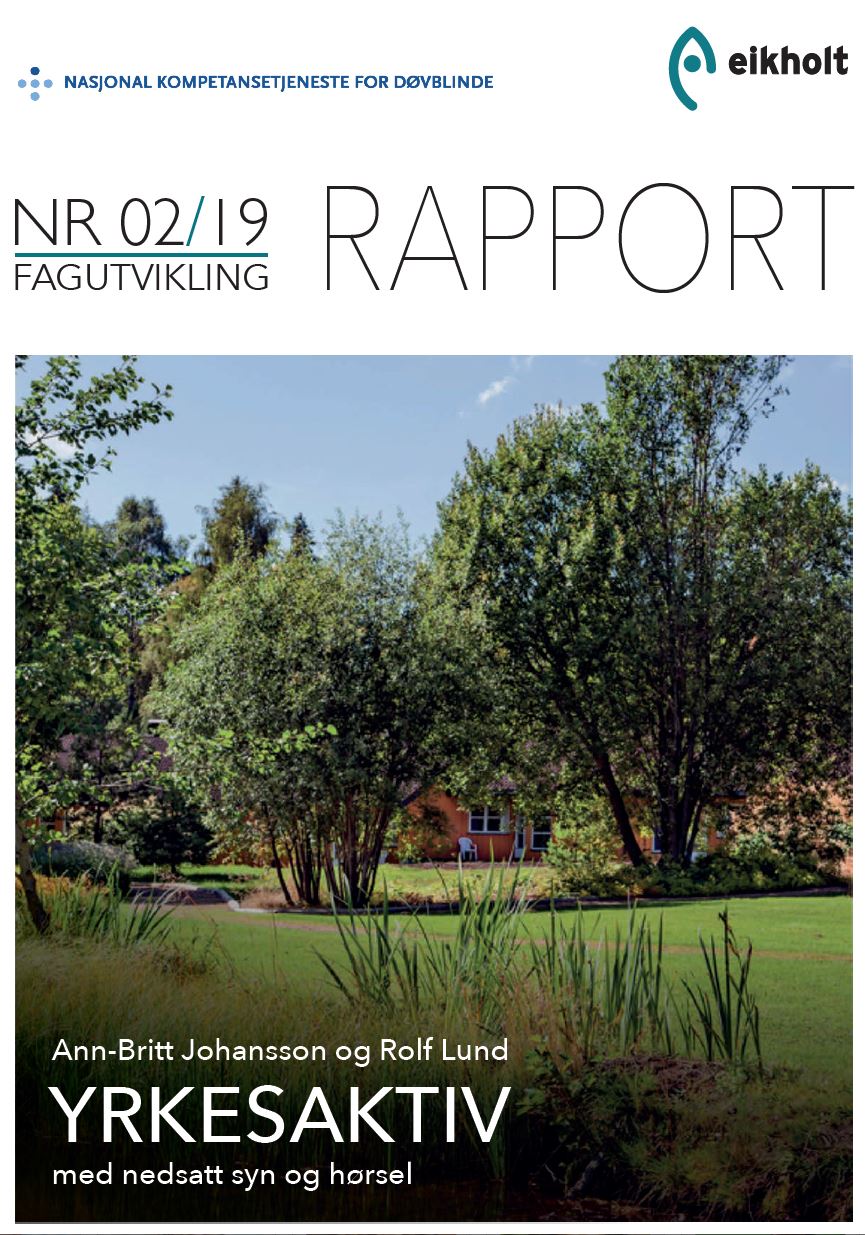Eikholt report - Working with visual and hearing impairment

People with acquired deafblindness have great difficulty gaining an understanding in society of the specific disability of having a combined sensory loss (NKDB, 2017). It is not easy to be seen and heard and to be able to make your own choices to participate in society (Johansson, 2017). Having a job is an important right for most adults in Norway. Many of those with acquired deafblindness have a job before the sensory loss becomes challenging. Keeping a job under such circumstances is a challenge and requires efforts in the form of rehabilitation and support programmes, among other things. The idea for this project was initiated at a workshop at Eikholt with 17 invited participants with visual and hearing impairments (Lund, Hovland & Enggrav, 2017). All ten participants in the project are employed and the purpose of the project is to uncover the most important success factors that are crucial to being able to keep their jobs.
The results show that there is a need to develop a new vocational rehabilitation programme for people with combined sensory loss. Such a programme should be aimed at young people who are in education and want to find their way into working life. But it must also include all those who already have a job and are fighting to keep it. A "job retention programme" in the form of a "working life programme" that includes what is required to keep a job should be created. This project has identified a number of elements that should be included in such a programme and how it could be organised. We envisage that the "Working life programme" could be structured as a combination of NAV adaptation courses and skills dissemination.
Furthermore, the project points out that there appears to be a great unmet need for a counselling service for employers and supervisors. Much of today's counselling services are geared towards the employee. As a result, many people with sensory impairment feel that they are overly responsible for ensuring that everything works. They take that responsibility because the workplace is important to them. Some of this pressure could be relieved if the employer and supervisor had better insight and more support in their role.
Want to read the report, read here
